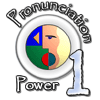Tenses and "to be" Verbs
by Shubhasis Chatkhandi
(Kolkata; India)
Dear Ola, I have two questions and would be sincerely thankful if answered.
1. We know that Auxiliary verbs ('be', 'have' and 'do') can also act as Main verbs in a sentence.
So, what will be the Present Continuous, Present Perfect and Present Perfect Continuous forms of the following sentence :
He is sick.
2. Why are the verbs 'am', 'is', 'are', 'was' and 'were' called 'be' verbs? Does it mean that the sentence "I am unwell" can be written as "I am to be unwell"?
With warm regards
Shubhasis
Comments for Tenses and "to be" Verbs
|
||
|
||
Still looking? Search the site for exactly what you need using the site search box below.
Happy exploring!
Discover these Amazing ESL Materials!
 |
 |
 |
 |
 |
 |
 |
 |
 |
 |